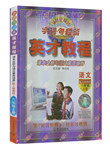题目内容
18.It is easy to lose patience with science today.The questions are pressing:How dangerous is air pollution?What about low-level radiation?When will that horrible earthquake strike California?And why can't we predict weather better?But the evidence is often described as"uncertain",forcing scientists to base their points of view almost as much on intuition(直觉)as on science.When historians and philosophers of science listen to these questions,some conclude that science may not be able to solve all these problems any time soon. The unknowns can grow into riddles that are impossible to solve. Because of the unstable and changing state of the earth's atmosphere,for example,scientists have struggled for centuries to predict the weather with precision(精确) but failed.
The case is different for scientists of astronomy. For example,they think that the gravitational force of a nearby space vehicle,though tiny,is able to change the path of a much larger planet if the vehicle spends enough time close to it. With the aid of Newton's laws of gravitational attraction,ground controllers can predict the path of a planetary probe (探测仪)-or satellite-with incredible accuracy. They do this by calculating the gravitational force from each of the passing planets until the probe speeds beyond the edge of the solar system.A much more difficult task is to calculate what happens when two or three times of such force pull on the probe at the same time. Such procedures can,of course,be very difficult,but for experiments,they are effective.
This range of questions-from simple problems to those impossibly complex-has resulted in nicknames for various fields of study:"soft"sciences and"hard"sciences."Soft"sciences admit a great degree of uncertainty. Academicians tend to judge fields such as sociology,psychology,and political science as"soft"because they are assumed to be understandable,of unnecessary mathematical accuracy,and concerned with everyday affairs such as interpersonal relationships. However,"hard"sciences,such as astronomy and chemistry,are said to offer precise answers. Precise definitions for"hard"sciences vary,but the characteristics of"hard"sciences include:producing testable predictions; performing controlled experiments; relying on quantifiable data and mathematical models; a high degree of accuracy and objectivity; and generally applying a pure form of the scientific method.
67.We can learn from the passage thatD.
A.a large planet is able to change the size of a tiny planet
B.ground controllers can affect the gravitational force of planets
C.calculating the probe speeds beyond the solar system is possible
D.predicting the weather is more difficult than predicting the path of a satellite
68.According to the author,"soft"sciencesA.
A.allow for certain inaccuracy
B.focus on personal relationships
C.are based on controlled experiments
D.are rooted in data and mathematical models
69. What might be the best title for the passage?C
A. Science,a Long History?
C. Science,Accurate or Not?
B. Science and Its Functions
D. Science and Its Application
70. What is the author's attitude towards science in this passage?A
A. Objective. B. Sceptical. C. Disapproval. D. Optimistic.
分析 本文是科技文章阅读.文章主要讲述科学的不确定性,人们应该有耐心地去等待和观察.
解答 67答案 D 细节理解题.题干意为:通过短文我们了解到什么?根据第二段的最后一句"科学家们奋斗了几个世纪来准确地预测天气,但是都失败了",和第三段的第三句"地面控制者能够预测星球探测仪和卫星的路线"可知选D.
68.答案 A 细节理解题.题干意为:根据作者的意思,软科学______.通过最后一段的第二句"软科学承认很大程度上存在不确定性"可知选A.
69.答案 C 推理判断题.题干意为:短文最好的题目可能是什么?根据文中提到可以准确预测探测仪的路线但不能准确预测天气可知答案.故答案为C
70.答案A 细节理解题.题干意为:在本文中,作者对科学的态度是什么?A.客观的、无偏见的;B.怀疑的;C.不赞成的;D.乐观的,根据文中叙述科学不可能解决所有的问题,和可以准确预测探测仪的路线但不能准确预测天气等信息可知作者持客观态度.故答案为A
点评 1、要想做好科普英语阅读理解题,同学们就要注意平时多读科普知识类文章,学习科普知识,积累常见的科普词汇,从根本上提高科普英语的阅读能力.
2、要熟悉科普类文章的结构特点.科普类文章一般由标题(Head line),导语(Introduction),背景(Back ground),主体(Main body)和结尾(End)五部分构成.标题是文章中心思想高度而又精辟的概括,但根据历年的高考情况来看,这类阅读理解材料一般不给标题,而要同学们选择标题.导语一般位于整篇文章的首段.背景交待一个事实的起因.主体则对导语概括的事实进行详细叙述,这一部分命题往往最多,因此,阅读时,同学们要把这部分作为重点.结尾往往也是中心思想的概括,并与导语相呼应,命题者常在此要设计一道推理判断题.
3、在进行推理判断时,同学们一定要以阅读材料所提供的科学事实为依据,同时所得出的结论还应符合基本的科普常识.

 字词句段篇系列答案
字词句段篇系列答案| A. | where | B. | that | C. | why | D. | as |
| A. | been out of job | B. | been out of work | ||
| C. | lost her job | D. | been out of jobs |
| A. | less | B. | least | C. | more | D. | most |
| A. | normal | B. | typical | C. | common | D. | ordinary |
| A. | too | B. | so | C. | such | D. | really |
| A. | explicit | B. | desired | C. | generous | D. | romantic |